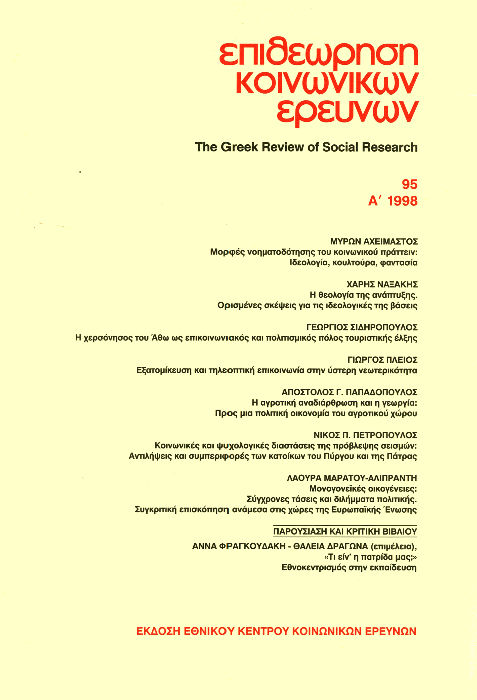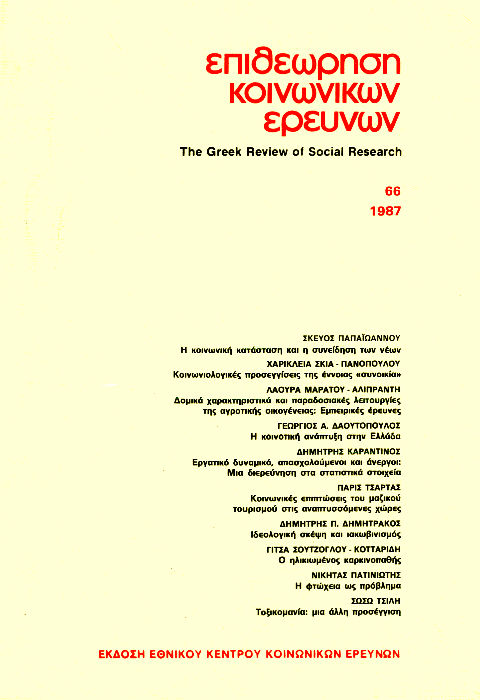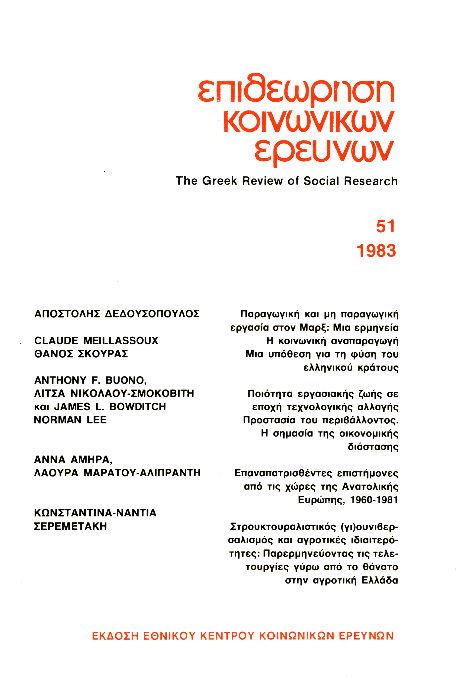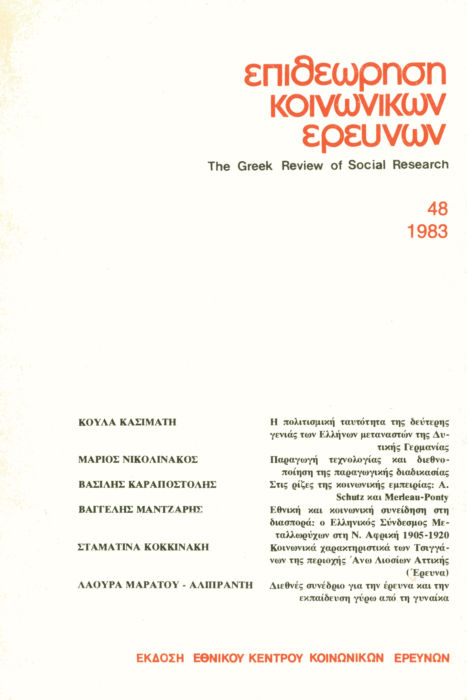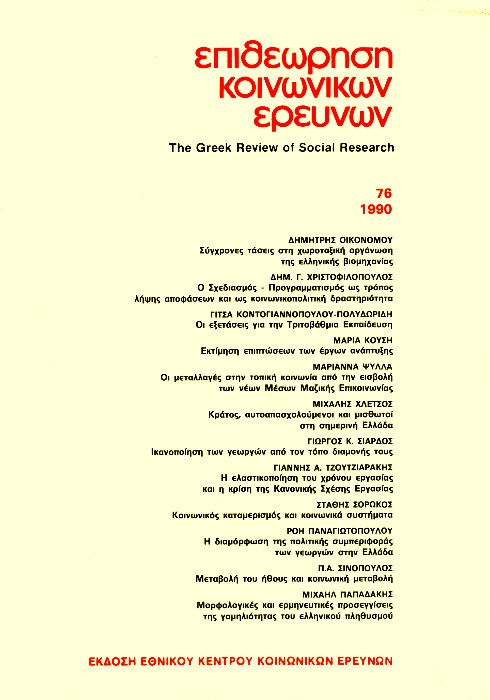Μονογονεϊκές οικογένειες: σύγχρονες τάσεις και διλήμματα πολιτικής: συγκριτική επισκόπηση ανάμεσα στις χώρες της Ευρωπαϊκής Ένωσης
Abstract
Οι μετασχηματισμοί που παρατηρούνται στις δυτικοευρωπαϊκές χώρες, κατά την τελευταία εικοσαετία, στη δομή της οικογένειας, σε συνδυασμό με τις αλλαγές στα δημογραφικά οικογενειακά δεδομένα, διαμορφώνουν τη νέα κοινωνική δυναμική και αντανακλούν τη διαφοροποιημένη αντιμετώπιση του θεσμού του γάμου. Οι μονογονεϊκές οικογένειες αυξάνονται σημαντικά και είναι, κυρίως, οικογένειες με αρχηγό γυναίκα και ανήλικο-α παιδί-ά. Η αποδυνάμωση της ισορροπίας ανάμεσα στο «ιδιωτικό» και στο «δημόσιο», που παρατηρείται σήμερα, υπογραμμίζει την ανάγκη για αναζήτηση νέων λύσεων και νέων τρόπων κοινωνικής προστασίας, προκειμένου να αντιμετωπιστούν πιο αποτελεσματικά οι νέες καταστάσεις που διαμορφώνονται στην ιδιωτική σφαίρα.
Article Details
- How to Cite
-
Μαράτου-Αλιπράντη Λ. (1998). Μονογονεϊκές οικογένειες: σύγχρονες τάσεις και διλήμματα πολιτικής: συγκριτική επισκόπηση ανάμεσα στις χώρες της Ευρωπαϊκής Ένωσης. The Greek Review of Social Research, 95, 185–208. https://doi.org/10.12681/grsr.726
- Issue
- 1998: 95 Α'
- Section
- Articles

This work is licensed under a Creative Commons Attribution-NonCommercial 4.0 International License.
Authors who publish with this journal agree to the following terms:
- Authors retain copyright and grant the journal right of first publication with the work simultaneously licensed under a Creative Commons Attribution Non-Commercial License that allows others to share the work with an acknowledgement of the work's authorship and initial publication in this journal.
- Authors are able to enter into separate, additional contractual arrangements for the non-exclusive distribution of the journal's published version of the work (e.g. post it to an institutional repository or publish it in a book), with an acknowledgement of its initial publication in this journal.
- Authors are permitted and encouraged to post their work online (preferably in institutional repositories or on their website) prior to and during the submission process, as it can lead to productive exchanges, as well as earlier and greater citation of published work (See The Effect of Open Access).

